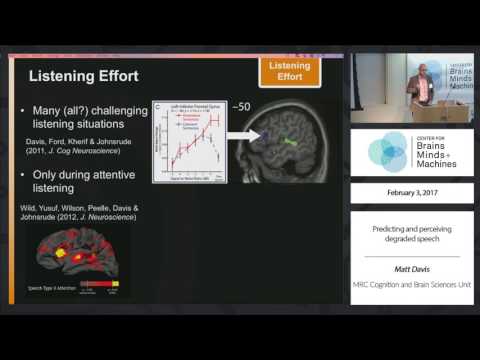Description:
Explore the intricacies of speech perception and prediction in this 41-minute lecture by Matt Davis from the MRC Cognition and Brain Sciences Unit. Delve into the complexities of cochlear implants and vocoded speech simulation, examining how these technologies impact listening effort and speech comprehension. Investigate the systems involved in perceiving and producing syllables, and learn about Representational Similarity Analysis for speech. Discover the application of Bayes Theorem in speech perception and compare machine and human capabilities in this domain. Analyze the predictive coding view of speech perception, exploring how prior knowledge influences our understanding of speech. Examine perceptual learning of vocoded speech and its relationship to prior knowledge. Conclude by studying a computational model that illustrates the predictive coding view of perception and learning in speech processing.

Predicting and Perceiving Degraded Speech
Add to list
#Science
#Biology
#Neuroscience
#Cognitive Neuroscience
#Computer Science
#Computational Models
#Mathematics
#Statistics & Probability
#Probability Theory
#Bayes Theorem